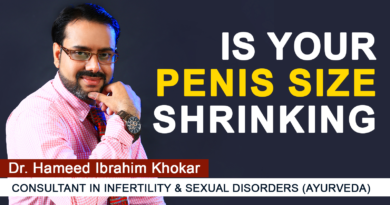What is the Main Cause of Erectile Dysfunction?
Impotence, often known as erectile dysfunction (ED), is a prevalent ailment that impacts millions of men globally. The inability to get or keep an erection strong enough for satisfying sexual performance is what defines it. While many factors can contribute to this condition, understanding the main causes of erectile dysfunction is crucial for effective prevention and treatment.
Understanding Erectile Dysfunction
Erectile dysfunction is not a disease in itself but rather a symptom of underlying health issues. It can be temporary or chronic, depending on its causes. To better understand what leads to erectile dysfunction, it’s essential to know how an erection occurs. During sexual arousal, nerves release chemicals that increase blood flow to the penis. This blood fills two chambers in the penis called the corpora cavernosa, causing the penis to expand and become rigid. When the muscles in the penis contract, the blood flow out, and the erection subsides. If there is any disruption in this process, erectile dysfunction can occur.
You will be interested on: Erectile Dysfunction Treatment in Hyderabad
Main Causes of Erectile Dysfunction
Erectile dysfunction can be caused by a number of circumstances. These can be broadly categorized into physical, psychological, and lifestyle-related causes.
Physical Causes
- Cardiovascular Disease: One of the most significant physical causes of erectile dysfunction is cardiovascular disease. Conditions such as high blood pressure, atherosclerosis (hardening of the arteries), and high cholesterol can restrict blood flow to the penis, making it difficult to achieve an erection. The health of your blood vessels is directly linked to your ability to maintain an erection, and any condition that impairs blood flow can lead to ED.
- Diabetes: Diabetes is another major cause of erectile dysfunction. High blood sugar levels can damage blood vessels and nerves throughout the body, including those that supply the penis. This damage can make it difficult for blood to flow to the penis or for the nerves to communicate sexual arousal signals to the brain.
- Obesity: Being overweight or obese can also contribute to erectile dysfunction. Excess body fat can lead to a range of health issues, including diabetes, high blood pressure, and high cholesterol, all of which can impair blood flow to the penis. Additionally, obesity can lower testosterone levels, which can further reduce sexual desire and performance.
- Hormonal Imbalances: Testosterone is the primary male sex hormone, and it plays a critical role in sexual function. Low testosterone levels can lead to a decreased libido and difficulty achieving or maintaining an erection. Hormonal imbalances can be caused by various factors, including aging, obesity, and certain medical conditions.
- Neurological Disorders: Conditions that affect the nervous system, such as multiple sclerosis, Parkinson’s disease, and spinal cord injuries, can interfere with the signals between the brain and the penis that are necessary for an erection. These conditions can make it difficult to achieve or maintain an erection, even if there is no physical damage to the penis itself.
- Medications: Some medications can also cause erectile dysfunction as a side effect. These include drugs used to treat high blood pressure, depression, anxiety, and other mental health conditions. If you suspect that your medication may be causing ED, it’s essential to speak with your doctor about potential alternatives.
Keep reading: Treatment for Erectile Dysfunction in Mysore
Psychological Causes
- Stress and Anxiety: Psychological factors can play a significant role in erectile dysfunction. Stress and anxiety, whether related to work, relationships, or other aspects of life, can interfere with sexual arousal. When the mind is preoccupied with worry or stress, it can be challenging to relax and focus on sexual activity, leading to difficulties with erection.
- Depression: Depression is another common psychological cause of erectile dysfunction. It can reduce sexual desire and make it difficult to achieve an erection. Moreover, many antidepressant medications can have sexual side effects, further complicating the situation.
- Performance Anxiety: Performance anxiety is a specific form of anxiety that can occur when a man is worried about his ability to perform sexually. This anxiety can create a vicious cycle, where fear of erectile dysfunction leads to actual difficulties with erection, which in turn increases anxiety.
- Relationship Issues: Problems in a relationship, such as poor communication, lack of intimacy, or unresolved conflicts, can also contribute to erectile dysfunction. Emotional disconnect or tension between partners can reduce sexual desire and make it challenging to achieve an erection.
You will be interested on: Treatment for Erectile Dysfunction in Bangalore
Lifestyle-Related Causes
- Smoking: Smoking is a significant risk factor for erectile dysfunction. The chemicals in tobacco can damage blood vessels, reducing blood flow to the penis. Additionally, smoking can lower testosterone levels, further contributing to ED. Quitting smoking is one of the most effective ways to improve erectile function.
- Alcohol: Excessive alcohol consumption can also lead to erectile dysfunction. While moderate drinking may not have a significant impact, heavy drinking can impair the nervous system and reduce blood flow to the penis. Chronic alcohol abuse can also lead to liver damage, which can further affect sexual health.
- Drug Use: The use of recreational drugs, such as marijuana, cocaine, and methamphetamines, can contribute to erectile dysfunction. These substances can affect the nervous system and reduce blood flow to the penis. Additionally, drug use can interfere with the brain’s ability to process sexual arousal signals, making it difficult to achieve an erection.
- Lack of Exercise: A sedentary lifestyle can also contribute to erectile dysfunction. Regular physical activity is essential for maintaining healthy blood flow and cardiovascular health. Lack of exercise can lead to obesity, diabetes, and other conditions that contribute to ED.
- Poor Diet: A diet high in processed foods, sugar, and unhealthy fats can lead to weight gain and other health issues that contribute to erectile dysfunction. Eating a balanced diet rich in fruits, vegetables, whole grains, and lean proteins can help maintain healthy blood flow and reduce the risk of ED.
Keep reading: Erectile Dysfunction (ED) treatment in Guwahati
Other Contributing Factors
While the above factors are the primary causes of erectile dysfunction, other factors can also play a role. For example, age is a significant factor, as the likelihood of developing ED increases with age. However, it is essential to note that erectile dysfunction is not an inevitable part of aging, and many older men can maintain healthy sexual function with the right lifestyle choices and medical care.
In addition, erectile dysfunction can be an early warning sign of more severe health problems. For example, because the blood vessels in the penis are smaller than those in other parts of the body, ED can sometimes be an early indicator of cardiovascular disease. Therefore, men who experience erectile dysfunction should seek medical advice to rule out underlying health issues.
You will be interested on: Erectile Dysfunction (ED) treatment in Gandhinagar
Prevention and Treatment of Erectile Dysfunction
Preventing erectile dysfunction often involves addressing the underlying causes. For many men, making lifestyle changes can significantly reduce the risk of ED. The following advice can help you avoid erectile dysfunction:
- Maintain a Healthy Weight: Keeping your weight within a healthy range can reduce your risk of developing conditions like diabetes and high blood pressure, which are significant contributors to ED.
- Exercise Regularly: Regular physical activity can help maintain cardiovascular health and improve blood flow to the penis. On most days of the week, try to get in at least 30 minutes of moderate activity.
- Eat a Balanced Diet: A diet rich in fruits, vegetables, whole grains, and lean proteins can help maintain healthy blood flow and reduce the risk of conditions that contribute to ED.
- Quit Smoking: Smoking can harm blood vessels and cause the penis to receive less blood flow. One of the best strategies to enhance erectile function is to stop smoking.
- Limit Alcohol: Reducing alcohol consumption can help prevent erectile dysfunction. Aim to drink in moderation, or consider abstaining from alcohol altogether if you have concerns about ED.
- Manage Stress: Managing stress and anxiety can help reduce the psychological factors that contribute to erectile dysfunction. Techniques such as mindfulness, meditation, and deep breathing exercises can be beneficial.
- Communicate with Your Partner: Open communication with your partner about sexual concerns can help reduce anxiety and improve intimacy. Working together to address any relationship issues can also improve sexual function.

Conclusion
Erectile dysfunction is a complex condition with many potential causes. While physical factors such as cardiovascular disease, diabetes, and obesity are the primary contributors, psychological and lifestyle-related factors can also play a significant role. Understanding the main causes of erectile dysfunction is the first step toward effective prevention and treatment. By making healthy lifestyle choices, managing stress, and seeking appropriate medical care, men can significantly reduce their risk of developing erectile dysfunction and maintain a healthy and satisfying sex life.
Keep reading: Erectile Dysfunction Treatment in Manikonda
For Online Consultation Call or WhatsApp +91-9995202100
Fill up Quick Online Consultation form





